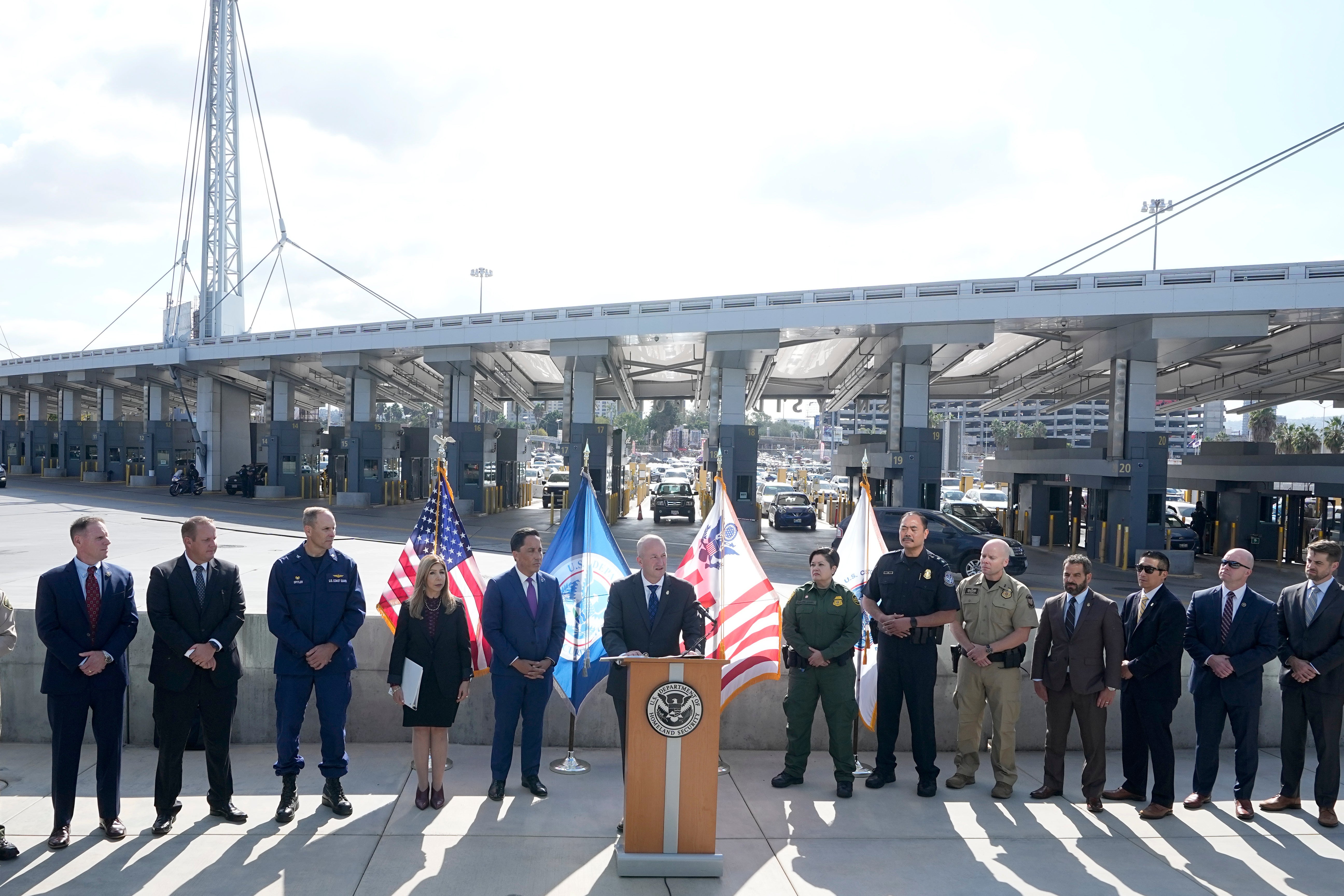US government says it plans to go after legal goods tied to illegal fentanyl trade in new strategy
The U.S. Customs and Border Protection has announced a new government-wide strategy that will target not only fentanyl but precursor materials used to make the synthetic opioid

As overdose deaths continue at a record pace, U.S. Customs and Border Protection announced a new government-wide strategy Thursday involving scores of agencies that will target the precursor materials used by traffickers to make fentanyl and other synthetic drugs.
Under the plan, CBP will work with the postal service and express consignment carriers, air carriers, and other logistic companies to share information about suspicious goods, potential transit routes, and other data that can help thwart the supply chain of fentanyl and other illicit synthetic drugs. Legal goods that could be targeted include molds and presses to make pills, as well as chemicals.
Legal goods used in the making of fentanyl have been arriving increasingly via air cargo from Asia to airports including in Los Angeles and then driven south into Mexico where cartels produce the drug and send it back to the U.S. to be sold illegally, officials said.
The aim is to hit “each node of the supply chain, based on data-driven intelligence,” the agency said.
The pilot project will be launched in Los Angeles, San Francisco and Portland, Oregon, and will leverage partnerships at all levels: state, local, tribal, territorial, law enforcement, governments, commercial industries, nongovernmental partners, and the international community, to combat networks tied to the deadliest overdose crisis in U.S. history.
Troy Miller, acting commissioner of Customs and Border Protection, made the announcement on the U.S.-Mexico border, standing with U.S. Coast Guard officials, San Diego County sheriff’s deputies and others at the nation’s busiest pedestrian crossing. Nearly half of the agency's seizures of fentanyl happen in the San Diego sector, he said.
The trade has evolved from 2016 when fentanyl was entering primarily via mail, concealed in envelopes, to now when machinery, dyes, and other materials are arriving via ships and planes to the United States before heading to Mexico to be used in fentanyl production feeding the U.S. overdose crisis.
In June, CBP officers examining cargo at Los Angeles International Airport unpacked a box from Asia labeled keyboards and found inside 175 pounds of chemicals that were later tested and found to be those used to make fentanyl, Miller said. The box had been destined for a warehouse on the U.S.-Mexico border. In September, officers at New York's John F. Kennedy Airport seized 14 dye and pill sets from China in separate shipments.
“These criminals are sophisticated, innovative and relentless,” Miller said. “But so are our efforts to stop them.”
All pill presses for legal uses are licensed by the Drug Enforcement Administration, Miller said, so officers will be checking for that as they examine shipments. They also will target other precursors used for the manufacturing of methamphetamine.
It is the latest effort by the Biden administration in its fight against the drug crisis. Earlier this month, the government announced a series of indictments and sanctions against Chinese companies and executives blamed for importing the chemicals used to make the deadly drug. The actions included charges against eight Chinese companies and their executives, who were accused of advertising, manufacturing and distributing precursor chemicals for the illegal sale of synthetic opioids like fentanyl.
CBP said it plans to target more businesses, including shippers, who are involved.
Mexico and China are the primary sources for fentanyl and fentanyl-related substances trafficked directly into the U.S., according to the Drug Enforcement Administration, which is tasked with combating illicit drug trafficking. Nearly all the precursor chemicals that are needed to make fentanyl come from China. And the companies that make the precursors routinely use fake return addresses and mislabel the products in order to avoid being caught by law enforcement.
Fentanyl, a powerful opioid, is the deadliest drug in the U.S. today. The Centers for Disease Control and Prevention states that drug overdose deaths have increased more than sevenfold from 2015 to 2021.
More than 100,000 deaths a year have been linked to drug overdoses since 2020 and about two-thirds of those are related to fentanyl.